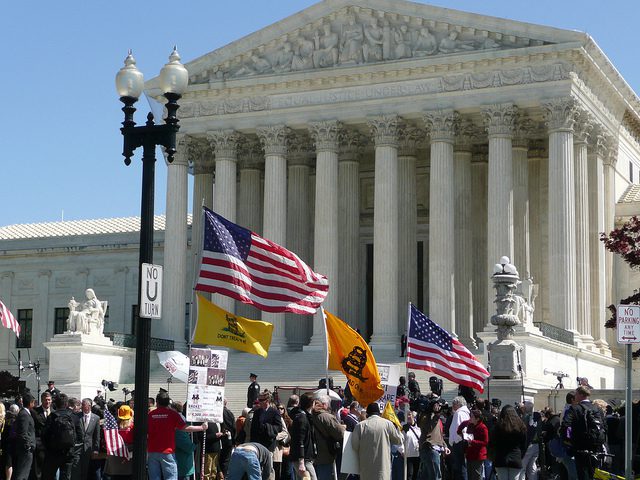- How Much Longer Will We, a People, Accept a Fact That Our Government Ignores Us?
- How Can ADHD Affect Your Life?
- Ja’Mal Green Takes Top Spot on Mayoral Ballot
- Rick and Morty Prefinale Season 6 Review
- TNS, and My Endeavor Into It
- Actress Kirstie Alley Dies during Age 71
- The USPS Is a Hot Mess and Needs a Major Reformation
- Do It Now: There Is No Promise That Tomorrow Is a Reality
- Kanye West Seems to Have Lost His Mind
- Why World AIDS Day Is Important [Video]
Justice Brett Kavanaugh’s Road to a Supreme Court Spurs Controversy
- Updated: October 12, 2018

After most debate during his acknowledgment hearing, Brett Kavanaugh was sworn in as a 144th probity probity on Oct. 6, 2018.
Initially, Senate Majority Leader Mitch McConnell (R-Ken.) did not accept a ask by Senate Minority Leader Chuck Schumer (D-New York) to have a passionate attack allegations opposite Kavanaugh investigated by a FBI.
McConnell penned a minute claiming that involving a sovereign review “would be rare and irregular.” He asserted a procession of vetting and confirming a Supreme Court probity was governed by a Memorandum of Understanding. The MOU:
Provides that designated and reasonably privileged staff members of a Senate Judiciary Committee are certified to brief Members of a Senate on a formula of BIs.
In a same letter, McConnell complained that a Democrats simply wanted to case Kavanaugh’s confirmation. He pronounced he feels that a Democratic celebration have positively been following by on their skeleton to delay.
McConnell serve asserted that a Senate Judiciary Committee Chairman Chuck Grassley (R-Iowa) has professionally and punctually investigated each convincing last-minute claim opposite Kavanaugh. McConnell claims he also checked each implausible accusation.
CNN reported that Grassley is a initial Senator that review a FBI review summaries. He was afterwards followed by Diane Feinstein (D-Calif.).
A Previous Controversial Supreme Court Nominee
Late former-President Ronald Reagan had a event to designate a third Supreme Court Justice during his second term. Unlike Reagan’s initial dual nominees who sailed by this acknowledgment hearings, the third acknowledgment did not go smoothly.
In 1987, Reagan nominated Robert Bork to reinstate a chair vacated by Judge Lewis F. Powell Jr. who became an Associate Justice after his assignment by former-President Richard Nixon. Bork had been a sovereign appeals probity decider during a prior 5 years.
Bork’s argumentative domestic papers and personal beliefs on Civil Rights legislation. His cases that endangered remoteness policies, caused House and Senate Democrats, led by former-Senator Ted Kennedy (D-Mass.) to act opposite his nomination.
Kennedy and other Congressional Democrats feared that Bork’s acknowledgment would change a probity to a right. On a Senate Floor Kennedy asserted that people of tone would once again be forced to lay in segregated lunch corridors, women would be forced to revisit back-alley abortionists, and expansion would not be taught in schools.
In a final hundred years, Democrats hold energy in Congress twice as prolonged as a Republicans. In 1987, they successfully blocked Bork’s acknowledgment 58-42, interjection to their dominance.
The unsuccessful acknowledgment spawned a new derogative tenure used by Republican and Democrats alike. Borking is used in anxiety to a act of vigorously doubt a domestic beliefs of a Supreme Court hopeful in sequence to derail a confirmation.
By John A. Federico
Edited by Cathy Milne-Ware
Sources:
Fox News: McConnell denies Schumer’s ask for FBI lecture on Kavanaugh probe
CNN: Senators to start reading FBI news Thursday morning
History.com: How Robert Bork’s Failed Nomination Led to a Changed Supreme Court
The Wall Street Journal: Brett Kavanaugh Confirmation Battle Tests Supreme Court’s Chief Justice
Top Image Courtesy of angela n.’s Flickr Page – Creative Commons License
Justice Brett Kavanaugh’s Road to a Supreme Court Spurs Controversy combined by John Federico on Oct 11, 2018
View all posts by John Federico →
